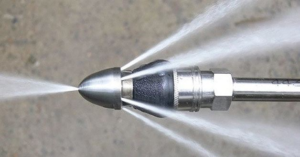Integrated pest management is the long-term control of unwanted organisms without using harmful chemicals. Learn to identify pests, and understand their development and behavior patterns. Practice good sanitation – clean tools, and remove debris that could harbor rodents and other nuisance creatures.
Scout your garden regularly to determine whether pest numbers have reached a threshold that warrants treatment. Use physical or biological controls first, before resorting to chemical methods. Click https://armispestmanagement.com/ to know more.

Integrated Pest Management (IPM) is an environmentally friendly way to keep pests from pestering you, your family and pets. It combines several methods such as monitoring, identification, scouting and exclusion. Whenever possible, it uses nonchemical controls rather than toxic chemical pest control products. Its goal is to protect the environment, human health and the reputation of a business.
It starts with a good understanding of what attracts pests to your property. This includes identifying food, water and shelter. It also means keeping all living areas clean and uncluttered. Then, seal entry points with caulking or steel wool. This helps prevent pests from entering, especially rodents such as mice or cockroaches that are attracted to crumbs and moisture.
The IPM approach also considers seasonal factors. For example, certain plant pests only affect a particular crop during specific windows of growth. By planting a crop before the pests emerge, farmers can get a head start and gain strength before being overwhelmed by the pest population.
When nonchemical control methods aren’t enough, IPM uses a variety of natural ways to knock out the pests. For instance, a forceful spray of water from a garden hose can knock pests like aphids and whiteflies off sturdy plants. Some gardeners also use natural enemies of pests, such as lady beetles and parasitic wasps, to help control the population. Other methods include a range of traps, including sticky ones for mice and roaches, as well as less-toxic dusts such as boric acid.
Some farmers even use “trap crops,” which are plants that can attract a pest but do not harm the primary crop. These are usually planted around the edges of a field. When a pest infests the trap crop, it is led away from the main crop to infest its own habitat, causing it to be destroyed before it can complete its life cycle and harm the primary crop.
Using IPM helps businesses avoid costly pest-related product recalls and customer rejection of shipments. The IPM checklist includes a range of preventive steps, such as setting up cleaning and sanitation protocols for incoming product shipments and establishing a protocol for uniform cleaning so that employees aren’t accidentally bringing pests into a facility. It also covers storage areas, which are often overlooked and can harbor pests.
Suppression
Using preventive tactics, you try to make it difficult for pests to survive and grow. This may include removing debris from fields or gardens that attract rodents and other pests, not transporting firewood that might contain tree-killing insect larvae and other diseases, or keeping your crops well-fertilized to reduce stress on them. Suppression tactics work best in combination with prevention strategies, as pests may still occur even if you eliminate all potential sources of them.
When a pest population reaches unacceptable levels, you must take action to control it. This may be prompted by aesthetic, health or economic concerns. Regardless of the reasons, the goal is to reduce damage by restricting pest populations to a level below an action threshold. Thresholds may be determined by examining the population trend of a pest or the effect of specific management practices, such as using herbicides or other chemicals, on pests.
The spatial arrangement of seminatural habitat in a farm field has been shown to affect the abundance and effectiveness of natural enemies that can suppress crop pests. When pests have few or no natural enemies, landscape configuration is less likely to matter. However, when natural enemies are abundant, landscape configuration may be more important.
For example, some predators primarily consume insects in crop fields, but others also prey on birds, reptiles and mammals. In one study, bats consumed 69.2% of the insect species in crop fields, and preyed on a high percentage of Lepidoptera (59.2%), Coleoptera (13.9%), Diptera (13.6%) and Hemiptera (2.2%). This indicates that croplands are an important part of the habitat for many predatory species, and that their spatial arrangement is crucial to the persistence of these organisms and their capacity to suppress pests.
Other natural enemies are specialized in their interaction with specific crops, such as parasitoids that overwinter in ant colonies and syrphid flies that inhabit sun-grown Brazilian coffee fields. Studies that examined whether the spatial arrangement of crop and non-crop areas affected their abundance found that syrphid flies in sun-grown coffee fields were more abundant when adjacent fields had hedgerows connected to forests, while parasitoids in irrigated rice agroecosystems were more abundant when these systems were interconnected by networks of vegetated embankments called bunds.
Monitoring
Monitoring is a key element of pest management because it helps you to see if your control efforts are working. The goals of monitoring are to identify pest species, determine their numbers, and assess the damage they cause. Monitoring can be done with a variety of methods including visual observations, soil extraction, beat trays, sweep nets, pitfall traps, sticky tape, light attractants, pheromone lures and more. For some pests, it may be best to monitor for characteristic damage symptoms such as plum curculio’s crescent-shaped oviposition scars or cranberry fruitworm larvae with their distinctive thorns.
If you are using a pesticide to control a pest, monitoring helps you to know whether you have reached the target pest population level (often called an economic injury threshold) that triggers a control strategy. Monitoring can also help you to decide when to use a less toxic approach, such as baits or cultural controls, rather than an expensive and hazardous spray treatment.
Some pests can be controlled without the need for chemicals by encouraging natural enemies, such as parasites and predators. For other pests, biological control involves altering the pest’s biology, such as by releasing sterile males or juvenile hormones. In all cases, biological control strategies require time to work because there is often a lag between when the pest population increases and when the number of its natural enemies increases.
Regardless of the type of pest you are trying to manage, monitoring can help you understand how to reduce their numbers and the amount of harm they do. Monitoring can also tell you whether you have achieved the desired outcomes of your pest animal management program. These goals are usually set out in a strategic pest animal management plan. They can include a reduction in the severity of damage caused by the pest, and/or a decrease in the frequency and intensity of control treatments needed to achieve that reduction. The success of a management plan can be assessed through monitoring and by comparing the results to the expected outcomes. If you are not achieving your goals, it’s time to review your management strategy.
Identification
Identification is the first step in developing a pest management plan. This step reveals basic information about the pest, including its life cycle and environmental requirements. Knowing these things makes it possible to select more targeted control methods. Incorrect identification can lead to poor pest control or even unnecessary treatment. For example, a misidentification of a Mediterranean fruit fly could result in an unnecessarily costly structural fumigation.
The physical characteristics of a pest can be different depending on its stage of development or time of year. For example, a weed seedling may look very different from an established weed, and some insect species develop through several immature stages before reaching the adult form. Identification is important because a pest’s weak points or “windows of opportunity” for controlling it are during certain periods or conditions.
Structural pests often require a particular environment to thrive. For example, a damp basement can provide a warm and humid refuge for some wood-destroying beetles and termites. In addition, some pests need a specific food source or habitat to survive and reproduce. These habitats can also influence where a pest is found and the extent of damage it causes.
Some pests are sporadic and may be present in limited numbers. Others are continuous and need to be controlled in a sustainable manner. To do this, managers need to consider what level of pest activity can be tolerated and the action threshold that will initiate a treatment response.
Eradication is rarely the goal in outdoor pest situations, although it is sometimes the target in enclosed environments such as buildings, health care facilities, and food processing plants. Eradication is usually reserved for pests that pose a significant threat to human or animal health, cause economic loss, or violate the environment’s natural processes. Identifying a pest accurately can help prevent the need for eradication by determining whether the pests are being confined or if they are present in large enough numbers to warrant a control effort. UF/IFAS offers a number of resources to assist with pest identification, such as a pest id guide, a field guide to urban insects, and a series of video tutorials on the basics of pest identification.






